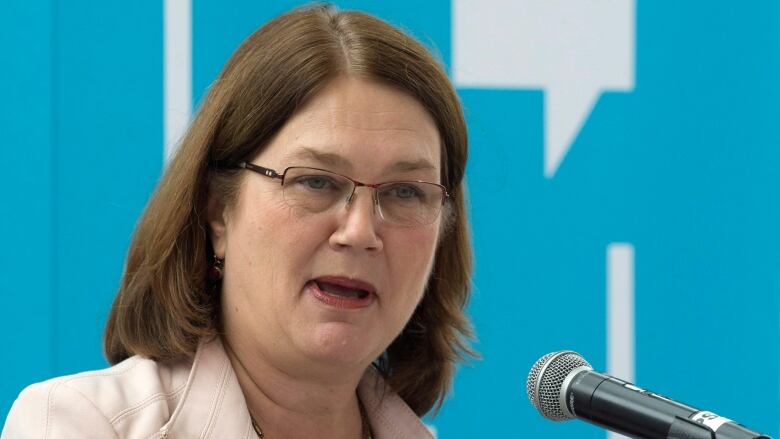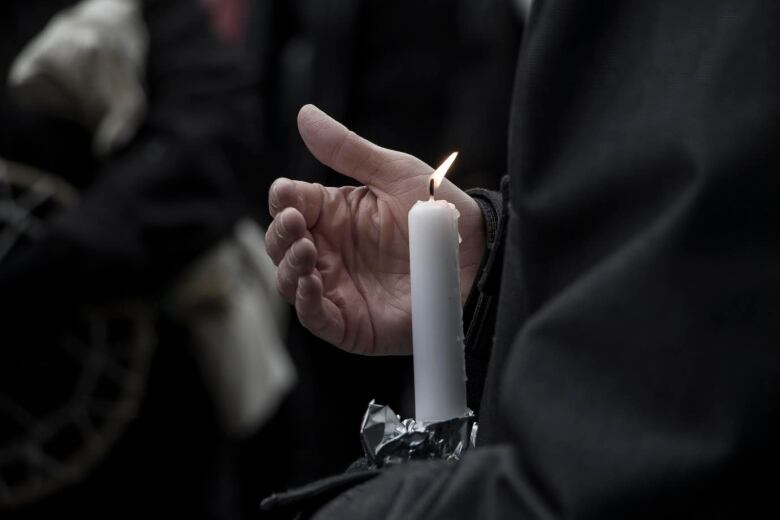Ottawa tracking opioid overdoses on First Nation communities for the 1st time
Only 40 per cent of First Nation communities reporting stats to federal government

The Canadian government is for the first time tracking the number of opioid overdoses on First Nation reserves, but the minister in charge of Indigenous health services says so far the data is incomplete and a struggle to obtain.
"This is a new concept," Indigenous Services Minister Jane Philpott said in an interview with CBC News on Thursday. "It has never been done before."
- First Nations people 5 times more likely to overdose in B.C., data shows
- B.C. First Nations say fentanyl crisis disproportionately affecting their communities
Health Canada and the former Indigenous and Northern Affairs department, which was split into two departments last month, initially said they didn't track opioid overdoses on reserves.
But numbers provided to CBC show the health department began keeping tabs on the situation this spring.
Philpott, speaking with reporters on Parliament Hill Monday, confirmed she asked her department to being tracking the numbers when she was health minister.
"We did a lot of work last year to begin to track opioid overdose deaths across the country, and it came to my attention when I was minister of health that we did not have specific tracking on opioid overdoses and deaths on reserve, and I asked the department to begin that process," Philpott said.
"There's still so much work to do but it's important to get a sense of how big the problem is and that will certainly help us to do the preventitive work and provide treatment and harm reduction as necessary," Philpott said.
Data comes from remote communities
Health Canada says it initiallycontacted to 155 First Nations communities and 153 are now providing information. That only represents about 40 per cent of First Nations communities and excludes British Columbia and the North.
B.C. has its own, more comprehensive, reporting system that includes First Nations people in urban areas, but it too has gaps.
Citing privacy, the federal government wouldn't reveal which First Nation reserves it's working with, but said the list mainly includes remote and isolated communities.
Since May 8, 13 suspected opioid overdoses on reserves have been logged with Health Canada, including two fatal cases, but the department concedes the number understates the scope of the opioid overdose situation affecting First Nations communities.
Philpott said some communities have been hesitant to share information because of stigma and the sensitive nature of the topic.
"We know the data is incomplete," Philpott told CBC News.
People are 'looking for a cheap way to manage pain'- Isadore Day, Ontario Regional Chief
Ontario Regional Chief Isadore Day, who is national chair of the Assembly of First Nations chiefs' committee on health, said he's been hearing about opioid misuse on reserves for more than a decade.
"The issue of opioids in our First Nation communities is a tragic emergency that has been there for quite some time," he told CBC Radio's The House.
People are "looking for a cheap way to manage pain," he said, and are often dealing with substandard health services.
Working on improving relationships
But improving the data collected is not an impossible task. Already, British Columbia's First Nations Health Authority is well ahead on tracking how the deadly wave of fentanyl and opioid addictions is hitting its communities.
The health authority, the first of its kind in Canada, produced a report with the provincial government in August suggesting First Nations people in B.C. are five times more likely to experience an overdose and three times more likely to die from one than non-Indigenous people.
Officials said racism, stigma and intergenerational trauma were factors in higher numbers of First Nations women, in particular, being affected.
The province is recognized as ground zero for the national opioid crises. Last year an unprecedented 922 people died from an illicit drug overdose in the province.

Dr. Shannon McDonald, the deputy chief medical officer for the authority, said because of its unique set up they are able match the list of status Indians in B.C. to the overdose data compiled by emergency medical services and most of the emergency rooms.
"We were able to release what is still not perfect data, but it's certainly better than what anybody else has that is specific to the impact of the opioid crisis in B.C. on First Nations individuals," she said.
"When we do talk to our partners in other places they are more than a little envious of those relationships."
Will naloxone kits help?
Even though they're ahead of most provinces and the federal government, McDonald said the data is still lagging and it's not clear yet if the province's response, such as supplying free and available naloxone kits, is helping Indigenous people.
"The fact that some Canadians are much more vulnerable than others is highly disturbing," said Philpott.
Philpott said she's working with First Nation leaders on addressing the uneven access to addiction treatment across the country
"There's always room to do better," she said. "This is an area I plan to prioritize."













_(720p).jpg)


 OFFICIAL HD MUSIC VIDEO.jpg)
.jpg)



























































































